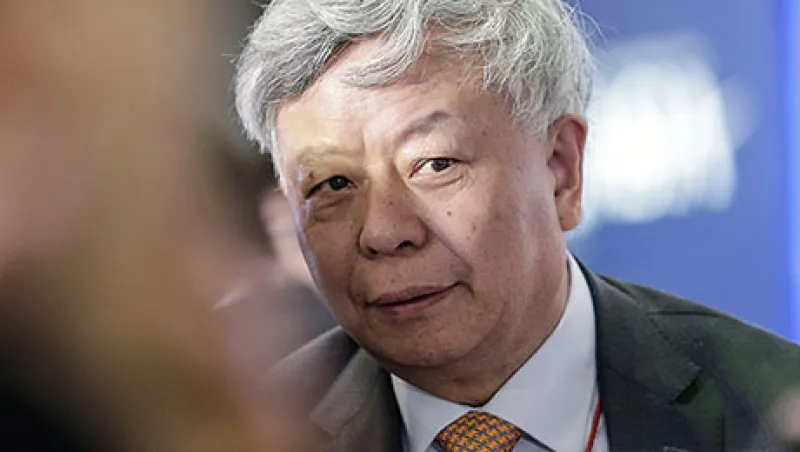
Jin Liqun, president of Asian Infrastructure Investment Bank (AIIB), attends the Boao Forum For Asia Annual Conference in Boao, China, on Friday, March 25, 2016. The annual event sees business and political leaders come together and runs from March 22 to 25. Photographer: Qilai Shen/Bloomberg *** Local Caption *** Jin Liqun
Qilai Shen/Bloomberg

